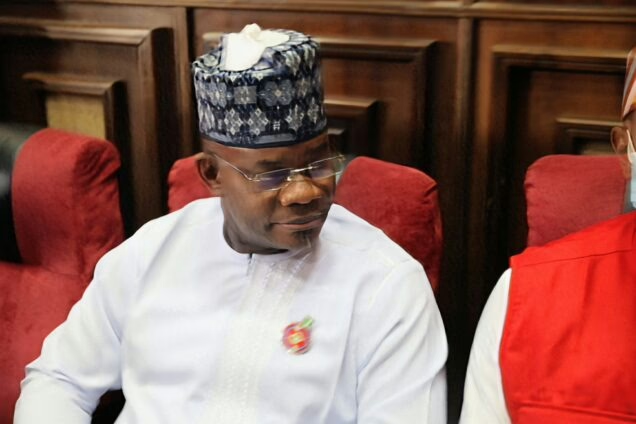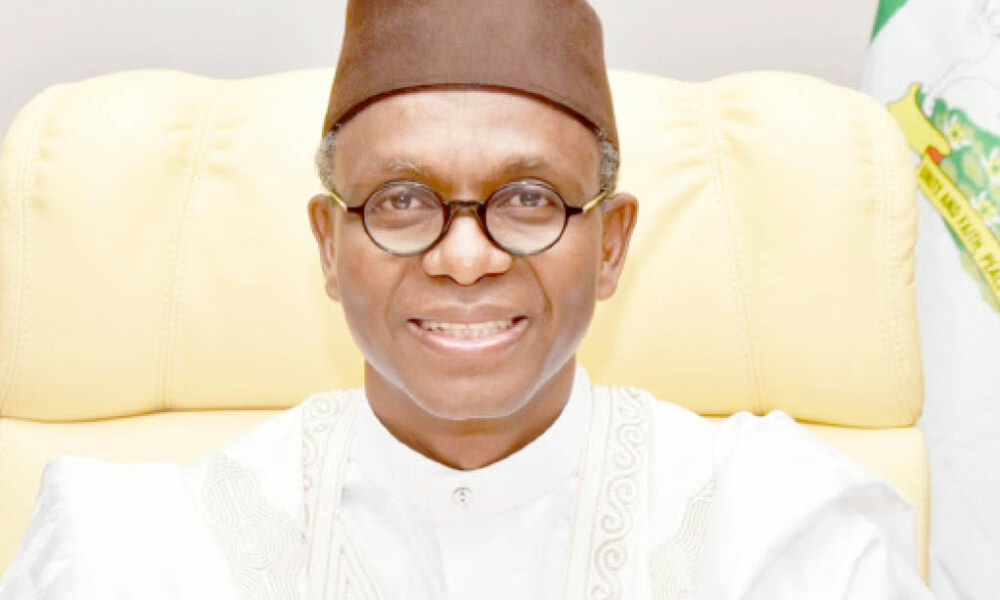• Things you need to know before going under the knife
By Oluseye Ojo and Ngozi Nwoke
It was judgment day for Anuoluwapo Adepoju, a Lagos based cosmetic surgeon on Friday May 17 2024, when Justice Muhammad Liman of the Federal High Court in Lagos handed her a one-year jail term over what the court believed to be a failed plastic surgery on one Nneka Onwuzuluigbo in 2020 leading to her death. But the surgeon was given an option to pay a fine of N100, 000.
She was arraigned alongside her cosmetic surgery firm, Med Contour Limited, on five count charge, for allegedly obstructing investigation into circumstances that led to her client’s death.
The Federal Competition and Consumer Protection Commission (FCCPC) said it investigated allegations that the surgeon’s services resulted in the death of Onwuzuluigbo and complaints by three others, Marlene Adejumo Oluwakemi, Taiwo Omolola Temilade and Vivian Onwuzuluigbo that Dr. Anuoluwapo’s body enhancement business was unsafe.
Court records indicated that the incidents happened between April 15 and May 4, 2020, in the Lekki Phase 1area of Lagos. The court said it delivered judgment after careful analysis of all the submissions of both the prosecution and the lawyer of the deceased.
Saturday Sun found out that a six-paragraph affidavit of completion of investigation carried out by the FCCPC, attached to the charge, showed that the commission received complaints that the surgeon’s services were unsafe for consumers, and that she made “false, misleading and deceptive representation in relation to the marketing of their services.”
But in a defence she put out on the social media, Dr. Adepoju said the deceased never died at her cosmetic surgery clinic, though she admitted that Nneka did undergo liposuction procedure at her clinic.
She explained that Nneka, a former beauty queen sought treatment at a teaching hospital in Lagos for pneumonia after the procedure. She added that Nneka spent over a month at the teaching hospital and was made to lie on her bum, a practice she said could lead to complications.
She also alleged that Nneka was forced to discontinue her antibiotic medications at the teaching hospital, which could have contributed to her deteriorating health. In her opinion, Nneka was mismanaged at the teaching hospital, which led to her tragic demise.
Dr. Adepoju further argued that there was evidence to support her claims that the late Nneka did not have fats in her lungs after her surgery, contradicting the narrative that her procedure was the cause of death
The case of Nneka who went through a butt enlargement procedure is not an isolated one as several other Nigerians have lost their lives in similar circumstances in the past.
Similar cases of death after plastic surgery
A significant number of individuals, particularly women, have lost their lives as a result of complications arising from cosmetic surgeries both in Nigeria and outside the country.
In 2005, the world grieved over the death of Stella Obasanjo, wife of then president, Olusegun Obasanjo. The First Lady died following complications after a liposuction. The cosmetic surgeon that carried out the procedure on her was later jailed, fined and banned for three years by a Malaga Court in Spain as a result of what was considered to be negligence on his part.
The case of a 23-year old Destiny Benjamin, who died four days after she underwent hip surgery, known as Brazilian Butt Lift (BBL) at a private clinic in Lagos, is still fresh in the memories of Nigerians. She succumbed to death on March 8, 2023.
In May 2022, a lady simply identified as Crystabel lost her life at a private clinic in Lagos due to complications after a cosmetic surgery.
A former governorship candidate in Bayelsa State, Keniebi Okoko, passed on after a cosmetic surgery in April 2020. He died at a private hospital in Lagos as a result of a failed liposuction surgery, which was believed to be for the removal of excess fat in his thighs, hips, stomach and other body parts.
What the doctors say
Interestingly, it is not entirely a story of woes for those who desire plastic surgery. According to the Royal College of Surgeons of England, “Aesthetic surgery can provide profound health benefits to patients – both physically and for their psychosocial wellbeing.”
Beyond the Royal College of Surgeons’ words of encouragement, Dr. Iyke Shiweobi, lead consultant, Berkshire Medical and Aesthetics, Festac, Lagos, described plastic surgery as a medical specialty that involves the reconstruction or alteration of the human body through surgical procedures.
Shiweobi said it can be divided into two main categories – reconstructive plastic surgery: This type of surgery aims to restore function and appearance to damaged or deformed body parts, often due to birth defects, injuries such as burns, trauma, diseases such as cancer, infections and congenital conditions.
The second category is aesthetic (cosmetic) plastic surgery: This type of surgery focuses on enhancing the appearance of a healthy body part, often for elective, personal reasons such as breast augmentation, facelift, anti-aging purposes, wrinkle reduction, skin tightening, body contouring, liposuction, tummy tuck.
To undergo these procedures Shiweobi said, it’s essential to consult with a qualified plastic surgeon to discuss the potential implications and risks specific to one’s procedure. This can help in making an informed decision and ensure a smooth experience.
“The procedure for plastic surgery typically involves the following steps:
Consultation: This involves meeting with a board-certified plastic surgeon to discuss your goals, options, and expectations. Examination: The surgeon evaluates your physical condition and takes measurements or photos for reference: Pre-operative preparation: Medical clearance from your primary care physician, blood tests, and imaging studies (if necessary), avoid certain medications and supplements, fasting and hydration instructions. Anaesthesia: Administered to ensure comfort during the procedure (local, intravenous, or general anaesthesia).”
He also explained that the procedure itself, which may involve incisions (size and location vary depending on the procedure), tissue manipulation (e.g., lifting, repositioning, removing), implant insertion (if applicable), closure (stitching, suturing, or stapling). Recovery: Initial recovery in a surgical facility or hospital, monitoring for complications, and pain management. Post-operative care: Follow-up appointments with the surgeon, wound care, and dressing changes, medication and activity instructions, and gradual return to normal activities. The final one is follow-up: Scheduled appointments to monitor progress, remove sutures, and address concerns.
“Plastic surgery, like any other surgical procedure, carries risks and implications. Some of the possible implications include scars. Plastic surgery leaves scars, which can be permanent and may take time to fade. Just like any surgery, there are risks associated with anesthesia, such as respiratory or cardiac complications, bleeding, hematoma, excessive bleeding during or after surgery can lead to complications, and infection.
“Recovery from plastic surgery can take time, which may impact work, social life, and daily activities. Emotional dependence is another factor as relying too heavily on plastic surgery to boost self-esteem can lead to emotional issues, potential for complications. There is a risk of complications, such as adhesions, seromas, or nerve damage.”
Similarly, Dr. Lattice Unyime of Revival Medical Specialist Hospital, Abule-Egba, Lagos, explained that the most important thing is to be absolutely sure that the plastic surgeon is competent, qualified, and certified to practice surgery.
“Anyone who is considering plastic surgery must find a qualified and experienced surgeon to perform your procedure. You can start by asking for referrals from your primary care physician or other trusted healthcare professionals. You can also check with professional organizations such as the Nigerian Society of Plastic Surgeons (NSPS) to find a qualified surgeon.”
In addition to getting a qualified surgeon, those who aspire to go for plastic surgery, the doctor said, must understand that it is a serious medical procedure and should not be taken lightly.
“It’s important to carefully consider the risks and benefits before making a decision.”
Plastic surgeries can also be reversed, but the extent of the reversal depends on the type of procedure.
“The reasons for the reversal of a plastic surgery are medical complications; changes in personal preferences or lifestyle, and regret over previous procedures.
Reversal procedures come with risks and limitations. Patients may not be able to fully restore their pre-procedure appearance, and repeated surgeries and reversals can have lasting or permanent effects,” Unyime said, admonishing that plastic surgery should not be seen as a bad thing.
But how safe is it to undergo plastic surgery in Nigeria? “Whether or not you undergo plastic surgery in Nigeria, it still depends on various factors which includes the type of surgery, the surgeon’s qualifications, and the individual’s health status,” the doctor explained. However, plastic surgery in Nigeria isn’t as popular as other surgical specialties, “but you can find plastic surgery units in many full-fledged hospitals, including government hospitals.
“There are two main types of plastic surgery in Nigeria: cosmetic (elective) and reconstructive (therapeutic). Every surgery has its risks and complications, regardless of the type of surgery and where it was done.”











